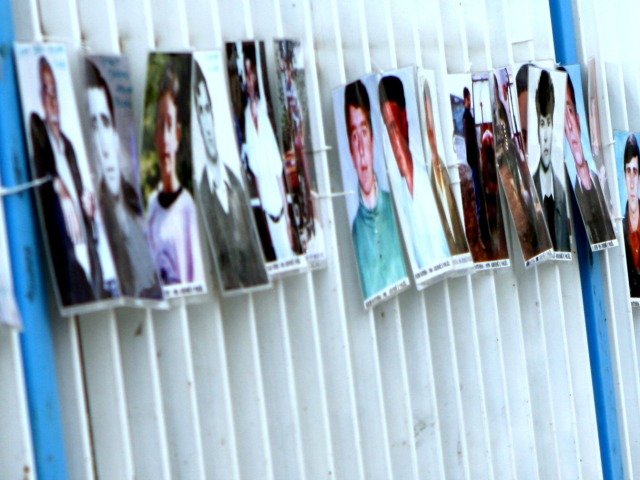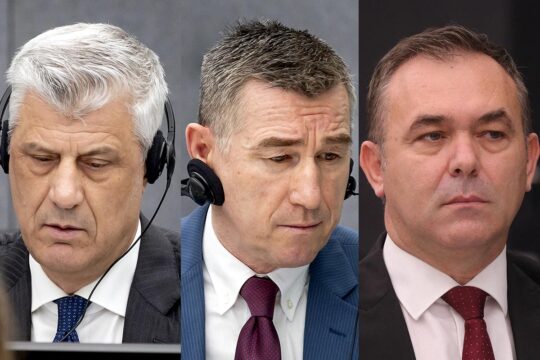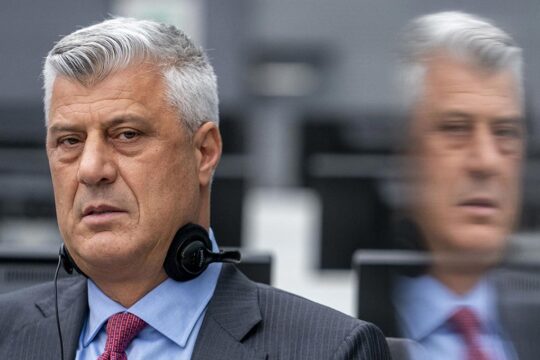A Kosovo government-backed working group set up to draft a national strategy for dealing with the wartime past has been troubled by divisions, disputes and failures to deliver, a new report says.
Kosovo’s Inter-Ministerial Working Group on Dealing with the Past and Reconciliation (IMWG) has been working since 2012 on developing a National Strategy on Transitional Justice - but with no public draft yet published, questions are being asked about why it has failed to live up to expectations.A group of NGOs is launching a report on Tuesday in Pristina examining the role of the IMWG, which concludes that its work was hampered by deficiencies related to leadership and management, political ownership, the representation and participation of Kosovo’s minority communities, and the lack of engagement of the general public.“This was not a smooth operation; it was actually very divisive operation,” one of the authors of the report, Thomas Unger, advisor to the Netherlands-based NGO Impunity Watch and lecturer at the Geneva Academy for International Humanitarian Law and Human Rights, told BIRN in an interview.“After five years we now have more division than actually trust among the different actors who were tasked to look into the questions of dealing with the past in Kosovo,” Unger said.Donor support for the IMWG also ended this year - and at the same time, Kosovo President Hashim Thaci, who was behind the establishment of the IMWG in 2012, launched a proposal for a new Commission on Truth and Reconciliation.According to observers, this new Commission seems to challenge the primacy of the IMWG in setting the agenda for dealing with Kosovo’s wartime past.
A lack of trust
Unger said that the new report, which was based on 25 review meetings and interviews with 32 people engaged in the process, from the Kosovo parliament, public institutions, civil society and the international community, showed that the IMWG “didn’t contribute to building trust between the government and different communities, in particular Serb community in Kosovo”.“Building trust is necessary if you want to look at question of dealing with the past which are very controversial, very divisive issues,” he noted.According to the report, the IMWG was led in authoritarian manner and did not properly include civil society and minority groups, who complained that they didn’t have a platform to speak about issues of the dealing with the past.The IMWG also didn’t produce any significant report, there were delays in adopting its rules of procedure and action plan, and a draft of the National Strategy for Transitional Justice has yet to be published.Unger said that the initial decision to establish the IMWG was good but the process failed so far to deliver any real results.“I would still say as the process was made by the government, so the ultimate responsibility lies with the government and the government should have an interest in the process, but there is a lack of political will by the government to deal with the past,” he argued.He believes that one of the biggest shortcomings was the lack of participation by Serbs, the largest ethnic group in Kosovo after Albanians.“There was participation at the beginning but because of the hostile environment within the group, these members left. The IMWG didn’t manage to produce the environment so these groups could stay,” Unger said.“The second issue is that the level of knowledge of this IMWG was very low in Kosovo, only organisations which work on this issue or which are connected to the Pristina circle would know about it,” he underlined.The report points to shortcomings within the work of the IMWG such as a lack of knowledge and ownership among some government and civil society representatives of IMWG , which contributed to poor decision-making, a lack of experience among the civil society groups involved about the way institutions work and the process of drafting strategies - as well as a lack of unity and cooperation between members, with internal tensions and disputes undermining the IMWG’s work.
No international pressure
Although the Kosovo government listens to the European Union and the international community, they have not prioritised transitional justice issues in their dealings with Pristina, believes Unger.“The problem is that the EU, but also other members of the international community like the US, have not really pushed the Kosovo government to work genuinely on dealing with the past. There is no strategic approach; it is not a priority issue for them,” he said.Progress on the transitional justice strategy is demanded as part of Kosovo’s EU accession process, however.“The main challenge is that there is no in-depth knowledge on the EU side what transitional justice means in general and what it means on the ground with governments, this needs to be improved” Unger argued.“On the other side at the higher level within the EU, despite the 2015 transitional justice policy the EU has, transitional justice is not a priority. Priority is the Pristina-Belgrade [negotiation] process, the stabilisation of this frozen conflict. Peace understood as an agreement between these two communities has priority over real action on dealing with the past. To deliver on transitional justice is however important to sustain peace in the long-run,” he said.Brussels sees peace, stability and economic development as its priority in Kosovo, rather than dealing with the crimes of the past, he added.
Renewed commitment needed
Unger said that after five years, the IMWG has shown that it is not likely to be able to develop the National Strategy on Transitional Justice unless it gets “strong political commitment from the highest level”.“If there is real commitment there will also be again participation of civil society,” he added.One of the main recommendations in the new report is that the IMWG should be more connected with other ongoing transitional justice processes, such as war crimes trials, reparation programmes and the new Hague-based Specialist Chambers which are to try former Kosovo Liberation Army members.“IMWG acted completely disconnected to these other transitional justice process, so the working group was not really the platform where these other processes where discussed,” Unger explained.Another recommendation is to make the process more inclusive so victims, victims’ associations and the general public become involved in consultations about what kind of transitional justice mechanisms should be used in Kosovo.“When we conducted interviews in January, not one of the people we interviewed knew that the national commission was coming,” Unger explained.“And that tells how transitional justice is done in Kosovo, it is very top-down approach where the political leadership decides on the basis of the various reasons to establish TJ mechanisms, most of the time they look towards the international community, to the US and Brussels,” he added.According to Unger, civil society also needs to work on a consolidated position.“It needs to come together and work on a common voice and idea and strategy where the process needs to go to. It should be a proactive actor in this process. Civil society needs to be Kosovo-wide civil society it shouldn’t be just Pristina-based,” he said.Unger said that the interviews conducted for the report gave him the impression that people felt that “the liberation war [for independence from Serbian oppression] legitimises everything, up until today” - including the crimes that were committed during the conflict.“I think Albanians went through collective trauma during the oppression but also during the war. The question for me is how to get out of this trauma, and if you speak with people, taxi drivers or waiters or other people on the street in Kosovo, it always comes to the question that Serbia or Belgrade are behind everything, there is a key role of politicians here from both sides, but they are so far failing” he said.That is why Unger believes that the relationship between Kosovo and Serbia - and the ongoing negotiations aimed at normalising that relationship - is closely linked to dealing with the past in Kosovo.In order to save the IMWG process, the report argues, the Kosovo government needs to urgently communicate its support at the highest political level.So far the focus in Kosovo, both for the government and international community, has been criminal justice, but Unger believes that other issues needs to be addressed as well, such as reparations for victims of all sides, and that there should also be more commitment to finding those who are still missing from wartime.“The problem of criminal justice is that each community wants it to happen to the ‘other’, it shouldn’t happen to your own community, so criminal justice is seen as a way to punish the other for the acts they committed,” Unger explained.“A broader approach of dealing with the past should convey the message that it is in general bad to commit war crimes and crimes against humanity, irrespective of any “good” reason and motive,” he concluded.
This article was first published by Balkan Insight.





